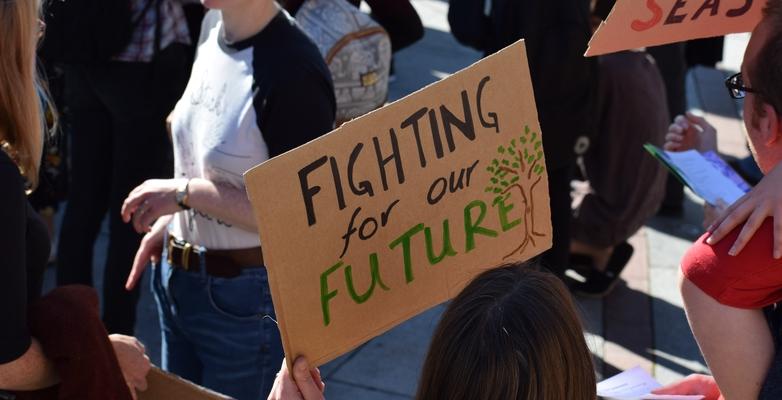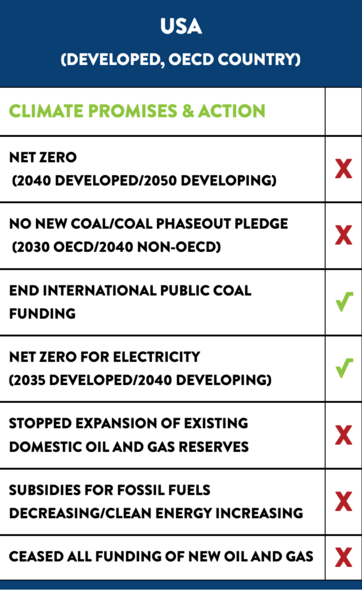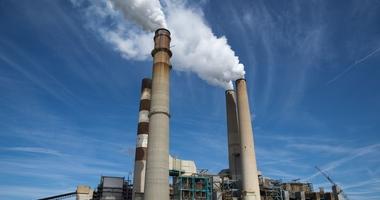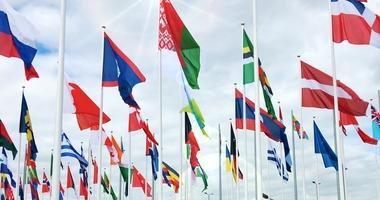
Where Do G20 Countries Stand on their Climate Commitments
3 min read
The G20 group of large economies have made a lot of promises. They’ve promised to cut the emissions driving the climate crisis. They’ve promised to do so by scaling up on renewables like wind and solar and scaling back on fossil fuels like coal, oil, and gas.
So how are they doing?
Not so great, it turns out.
We checked in on where each country – Argentina, Australia, Brazil, Canada, China, France, Germany, India, Indonesia, Italy, Japan, Mexico, Russia, Saudi Arabia, South Africa, South Korea, Turkey, United Kingdom, USA, and the European Union – stands in meeting key climate commitments. The results aren’t exactly flattering.
>> Where Do G20 Countries Stand? Check Out Our Score Cards <<
On a Path to Net Zero
To truly beat the climate crisis, we need to halve global emissions in the next seven years and work to reach net zero by 2050 in developing countries and as close to 2040 as possible in developed economies. But just three countries in the G20 have so far committed to doing this: Argentina, Brazil, and South Africa.
All other countries in the G20 have not made this more ambitious commitment and that is concerning because that’s where we all need to be to beat this crisis.
There is a bright spot on the horizon, though. While most countries are not on pace to meet overall net zero emissions in the time frame needed, several have committed to doing soin their electricity sectors. By 2035, Canada, France, Germany, Italy, Japan, the United Kingdom, the United States, and the European Union have all pledged that their electricity sectors will reach net zero.

Stop Funding for Expanding Coal
One area where countries are doing slightly better is ending funding for coal.
All countries in the G20 have pledged to end international public coal funding – meaning they will no longer ship money overseas to subsidize dirty coal energy.
Several large economies have pledged to phaseout coal entirely, including some by 2030. Canada, France, Italy, and the United Kingdom have all pledged to kick coal to the curb, ending the reign of a once dominant major polluter.
Many other countries, however, have not pledged to phaseout dirty coal – a major missed opportunity from some of the biggest countries in the world to put an end to one of the biggest polluters on the planet.
Oil and Gas Production
One addiction the G20 can’t quit is oil and gas.
With the exception of France and countries that do not have domestic oil and gas production, no country in the G20 has pledged to stop the expansion of domestic oil and gas reserves.
Similarly, France is the only country in the G20 that has pledged to cease all funding for new oil and gas development.
This is a worrying trend for a number of reasons.
Natural gas, in particular, is a growing energy source – one many are putting a lot of faith in.
“Over the past decade, global natural gas consumption has grown at an average annual rate of 2.0%,” according to Forbes. And it is expected to keep growing – all at a time when we need to be phasing out dangerous fossil fuels in favor of more renewable energy. The International Energy Agency estimates that global demand for natural gas is on course to grow by an average of 1.6% per year through 2026.
Countries’ refusal to put people over Big Polluter profits is an unfortunate precedent – particularly at a time when the climate crisis is at a dangerous tipping point.
2023 is on pace to be the hottest year ever recorded. We’ve seen extreme weather disaster after extreme weather disaster, from major heat waves in Europe, China, and the US to powerful, deadly storms in the Mediterranean. And it will only get worse from here – unless we act now to stop it.
Join Us and Demand Action
This year, the climate crisis has hit home in new and terrifying ways for so many of us – and as you’ve just read, major countries around the world aren’t doing nearly enough to stop it.
We can and must do better than this.
That’s why, on December 7, our 24 Hours of Reality media event is taking audiences worldwide to the heart of the global response to the climate crisis and the UN’s COP 28 climate summit in Dubai.
Join us for a day of stories, interviews, and more streamed from Dubai. It's a chance to hear from negotiators inside talks to phase out fossil fuels and stop global warming – as well as youth voices, Indigenous leaders, and advocates fighting for our future.
Sign up now for reminders and updates about 24 Hours of Reality: On the Ground at COP 28 here.




